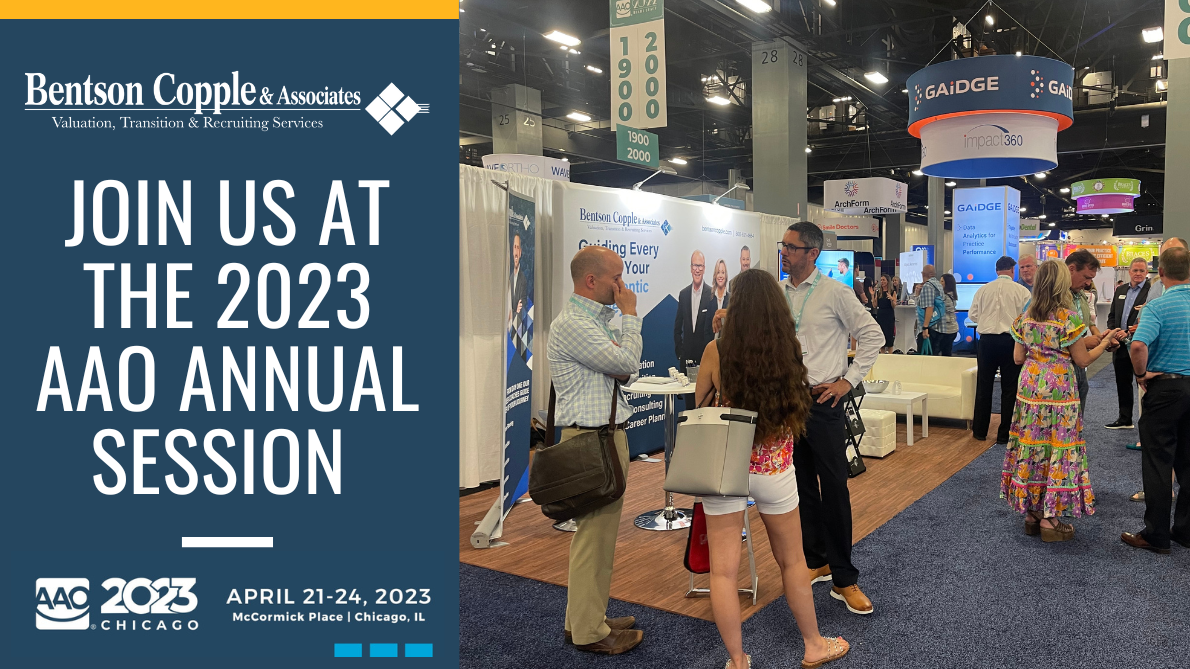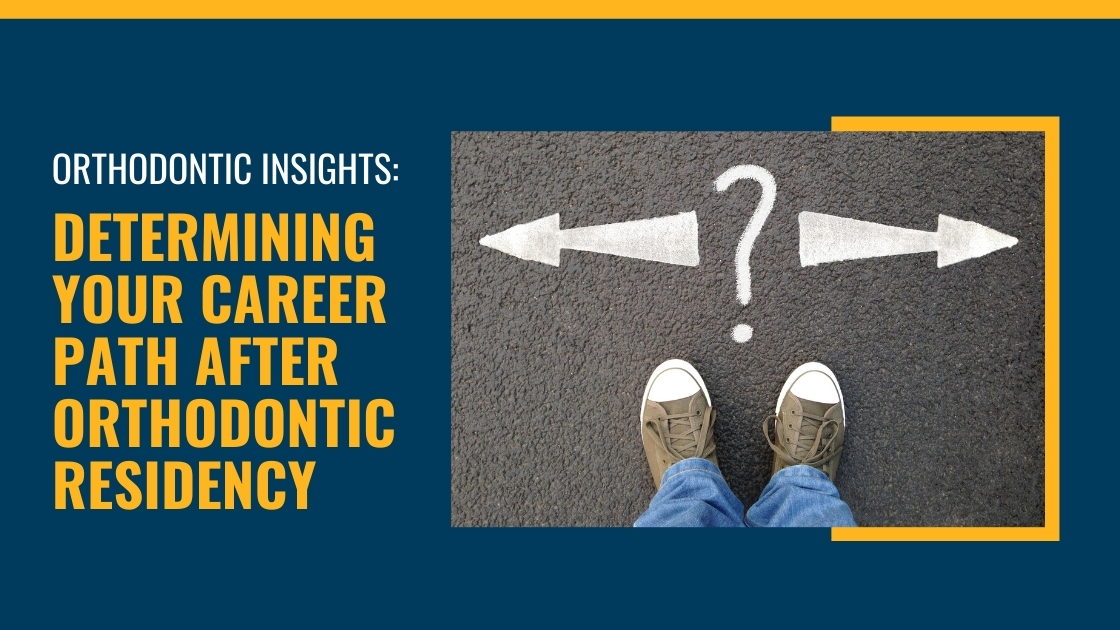The Bentson Copple & Associates’ team will be attending the upcoming AAO Annual Session (April 22-25) in Chicago and involved in many orthodontic resident and younger doctor events. The Annual Session offers many educational lectures, career networking, and other opportunities. Listed below are a few events our team will be participating in.
New Orthodontic Resident Conference featuring Dr. Chris Teeters & Shannon Patterson
Saturday, April 22 – 11:30am – 2:00pm
Shannon Patterson will present, How to Get the Job You Really Want! It doesn’t matter if you’re pursuing an associate position or looking to purchase a practice – finding the right opportunity is hard. It is impossible to reach your goal if you don’t have one. Before you throw all your ambitions out the window and accept any offer, consider changing your approach. This short lecture will share tips and secrets to helping you land the job you really want!
If you’re a resident or new orthodontist, this program is organized just for you by the AAO Council on New and Younger Members. Join us for a complimentary “lunch & learn” featuring two short TED-style keynotes, followed by small group discussions led by industry experts, experienced orthodontists, and AAO leaders on various career and business topics. Advanced reservation is preferred. As you enter the room, please find a table/topic that interests you. Seating will be available on a first-come, first-serve basis. Complimentary lunch is provided for the discussion portion around 12:30 pm.
F.R.E.D. Talk: The Uncertain Winds of a Challenging Economy: Using Data from the Past to Drive Our Current Actions so We are Prepared for Tomorrow
Sunday, April 23 – 10:00am – 10:50am
Chris Bentson will focus on the challenging Winds that every practice is facing – the economy, staffing, consolidation, growth. This lecture, held within the exhibit hall, will focus on these four areas using current data and insights derived from thirty-five years of experience in orthodontics.
Orthodontic Career Fair
Sunday, April 23 – 1:00pm – 3:00pm
Information & Directions
Shannon Patterson and Shane Burden will be a part of the annual Orthodontic Career Fair, held in McCormick Place West Building, Level 3, North Pre-Function. The event offers the opportunity to engage face-to-face with employer representatives and discuss possible opportunities. The event will feature many companies and practices with available opportunities, such as associate positions, pathway to partnership opportunities, and practices for sale. This is a free event and is open to all to attend; however, Annual Session registration is required.
Lecture: All Roads Lead to Today: Orthodontic Trends, Insights, & Predictions
Sunday, April 23 – 2:10pm – 3:10pm
Over the past three years, the entire industry has overcome huge obstacles, learned to adapt, and produced innovators with new ideas. Chris Bentson will focus on the current trends, data insights, and shifting business models that all orthodontists need to know as we move forward in the uncertain economic environment.
Exhibit Hall
We invite all doctors to stop by the Bentson Copple & Associates booth (#816) any time during the Annual Session. Our team will be happy to discuss plans for a potential practice valuation/appraisal, a practice transition, or any other change of orthodontic ownership. Residents and job seekers can also learn more about our placement services and variable career opportunities.










 By:
By:  By:
By:  In the latest issue of
In the latest issue of  By:
By:  By:
By: